Sustainable Sips: Choosing Eco-Friendly Beverages
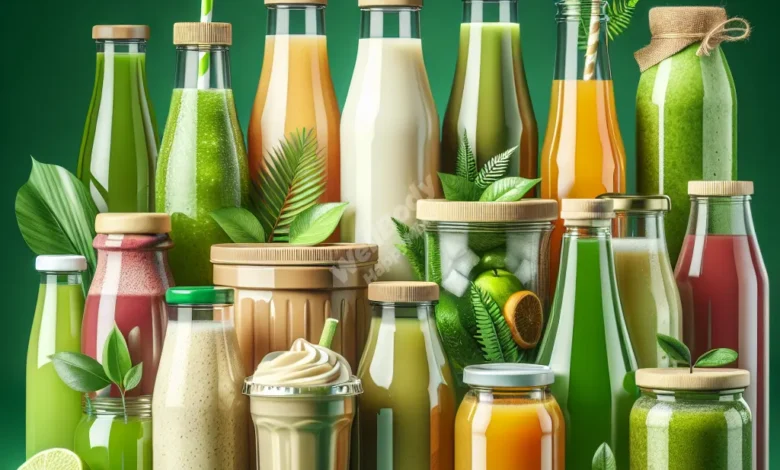
Introduction
Did you know that the beverage industry contributes to about 5% of global greenhouse gas emissions? That’s a lot of impact for something we sip on every day! But don’t worry, there’s good news: by making smart choices about our drinks, we can help the planet and our health at the same time.
In this post, we’ll explore the world of eco-friendly beverages and how choosing them can make a big difference. We’ll look at:
- Why some drinks are better for the environment than others
- How you can easily switch to more sustainable options
- Ways to make choices that are good for you and good for the Earth
By the end, you’ll have all the info you need to make environmentally friendly drink choices. Ready to dive in? Let’s get started on this refreshing journey towards sustainable sips!
Understanding Eco-Friendly Beverages
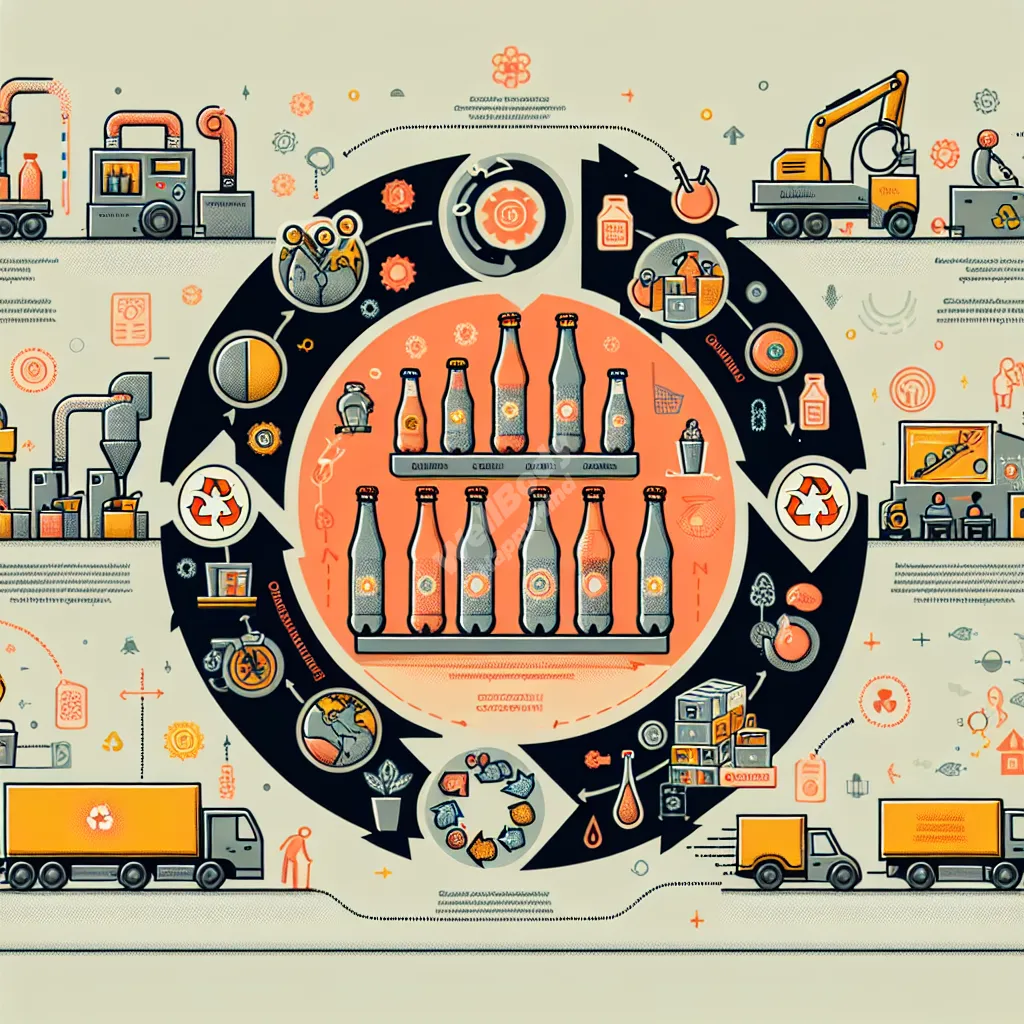
What exactly are eco-friendly beverages? Simply put, these are drinks that have a lower environmental impact throughout their lifecycle – from production to consumption and disposal.
Here’s what makes a beverage environmentally friendly:
- Sustainable production methods: Using less water, energy, and chemicals in farming and manufacturing.
- Eco-friendly packaging: Opting for recyclable, biodegradable, or reusable containers.
- Reduced transportation: Sourcing ingredients locally to cut down on shipping distances.
- Ethical practices: Fair treatment of workers and responsible use of natural resources.
The trend towards sustainable drinks is growing fast. More and more people are looking for ways to quench their thirst without hurting the planet. From coffee shops offering discounts for reusable cups to supermarkets stocking more organic options, eco-friendly beverages are becoming easier to find.
By choosing these greener options, we’re not just helping the environment. We’re also often picking healthier drinks with fewer artificial ingredients. It’s a win-win for our bodies and the planet!
The Environmental Impact of Common Beverages

Not all drinks are created equal when it comes to their environmental footprint. Some of our everyday favorites can have a surprisingly big impact on the planet. Let’s take a look at some common beverages and their effects:
- Bottled Water:
• Produces up to 1.5 million tons of plastic waste annually
• Requires about 17 million barrels of oil yearly for bottle production
• Often transported long distances, increasing carbon emissions - Sodas:
• High water usage in production (up to 2.5 liters for every 1 liter of soda)
• Sugar production leads to soil degradation and water pollution
• Aluminum cans and plastic bottles contribute to waste - Coffee:
• Intensive farming practices can lead to deforestation
• High water usage (about 140 liters to produce one cup)
• Transportation of beans often involves long distances - Dairy Milk:
• Large carbon footprint due to methane emissions from cows
• Requires significant land and water resources
• Processing and refrigeration add to energy consumption
These drinks become problematic for the environment due to their resource-intensive production, packaging waste, and transportation needs. However, being aware of these impacts is the first step towards making more sustainable choices!
Choosing Sustainable Alternatives
Water

- Tap water vs. bottled water:
- Tap water is 200 times cheaper and has a much lower carbon footprint
- If you’re concerned about taste or quality, consider a home filtration system
- Reusable water bottles:
- Opt for bottles made from:
- Stainless steel (durable and recyclable)
- Glass (non-toxic and recyclable)
- BPA-free plastic (lightweight and long-lasting)
- Home filtration:
- Pitcher filters or faucet-mounted systems can improve taste and remove impurities
- These systems reduce the need for bottled water, saving money and reducing plastic waste
Coffee and Tea

- Look for organic and fair-trade certifications:
- These ensure environmentally friendly farming practices and fair wages for workers
- Try sustainable brewing methods:
- French press (no paper filter needed)
- Reusable cloth or metal filters
- Cold brew (uses less energy than hot brewing)
- Reduce waste by:
- Using a reusable cup for takeaway orders
- Composting coffee grounds and tea leaves
Alcoholic Beverages
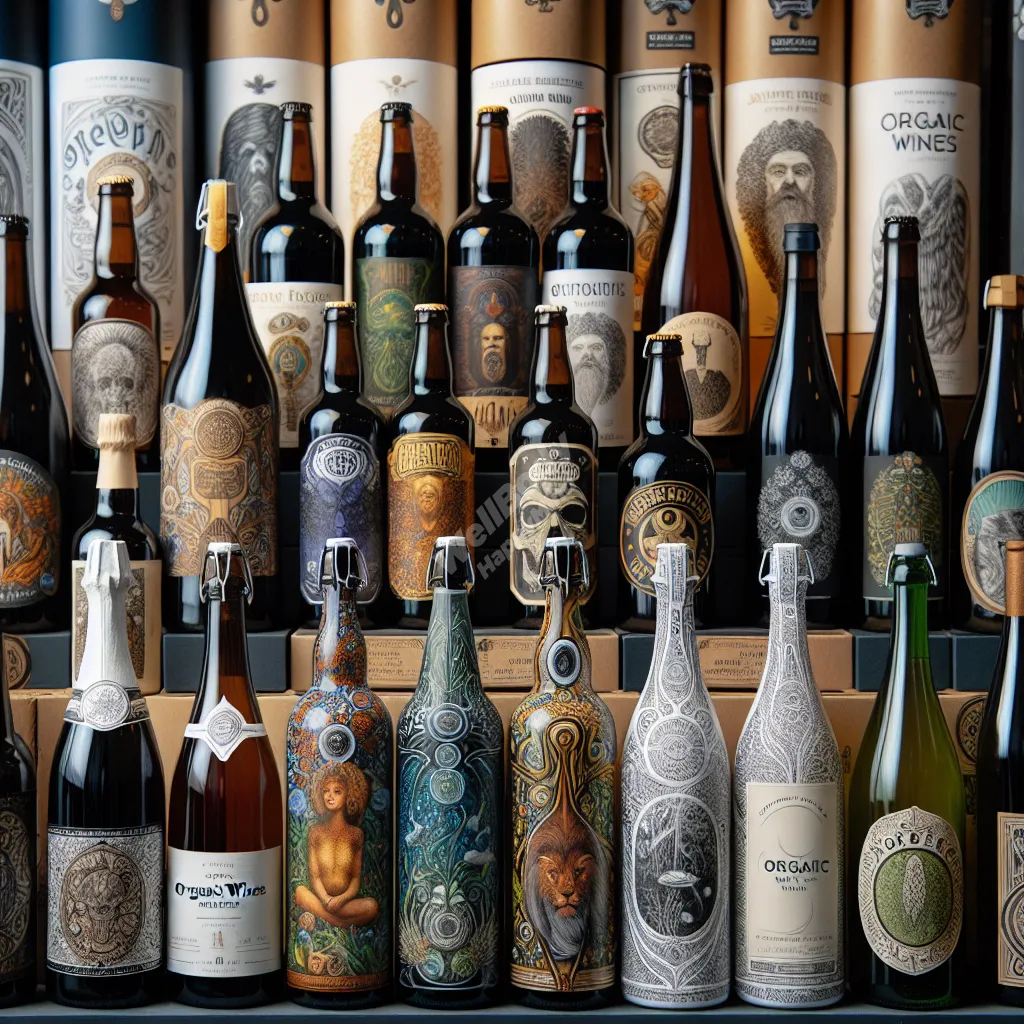
- Sustainable wine practices:
- Organic or biodynamic farming methods
- Local wineries to reduce transportation emissions
- Craft beers:
- Often use locally sourced ingredients
- Many craft breweries focus on sustainability in their operations
- Eco-friendly spirits:
- Look for brands using organic ingredients or sustainable production methods
- Choose cocktail mixers in recyclable packaging or make your own
Plant-Based Milk Alternatives
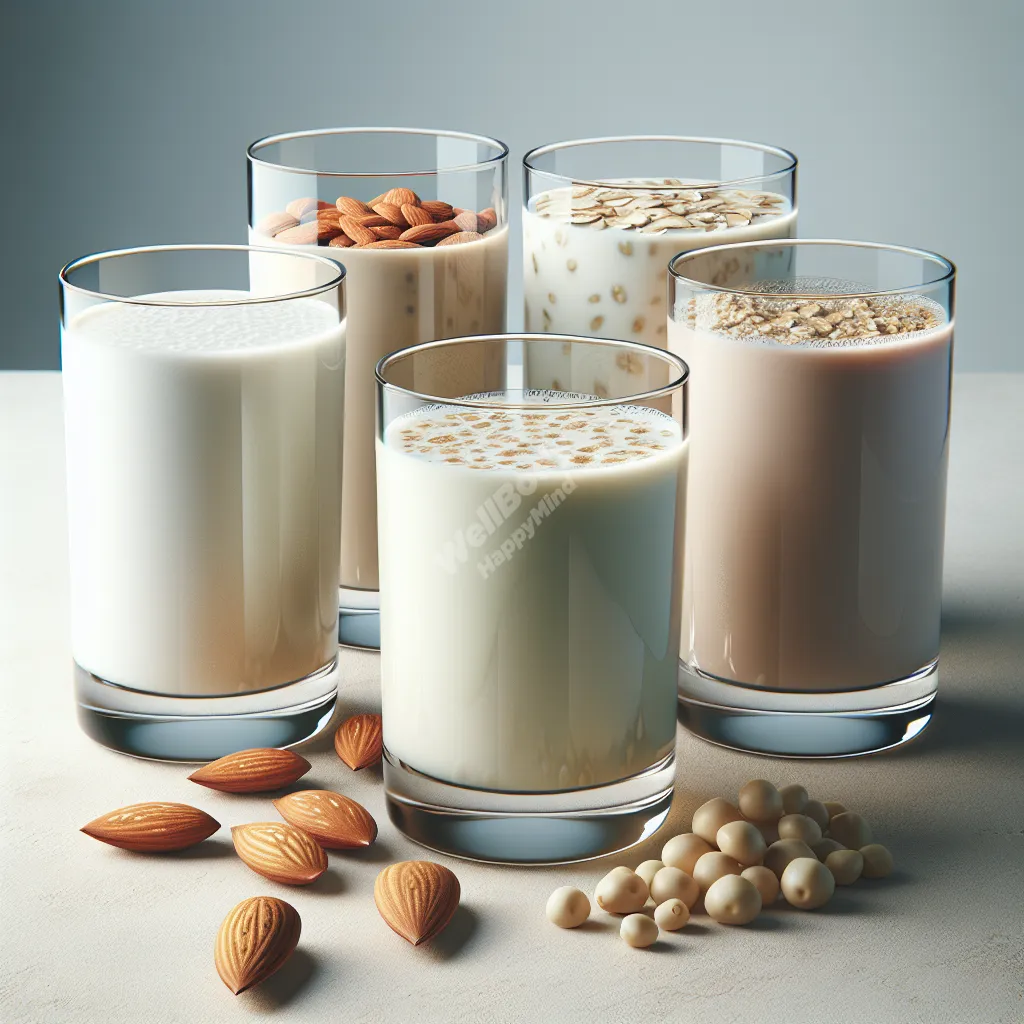
Plant-based milks are often more environmentally friendly than dairy milk. Here’s why:
- They generally use less water and land to produce
- They emit fewer greenhouse gases during production
- Many options are available, suiting different tastes and nutritional needs
Let’s compare some popular plant-based milk options:
| Milk Type | Environmental Impact | Taste Profile | Nutritional Highlights |
|---|---|---|---|
| Oat | Low water use, can be grown locally | Creamy, slightly sweet | High in fiber, often fortified |
| Almond | Low emissions, but high water use | Light, nutty | Low in calories, high in vitamin E |
| Soy | Moderate land use, good protein yield | Neutral, versatile | High in protein, similar to dairy milk |
| Coconut | Low water use, but transportation impact | Rich, tropical | High in healthy fats, low in protein |
Tips for choosing the most sustainable plant-based milk:
- Look for local options to reduce transportation emissions
- Check the ingredient list for minimal additives
- Consider packaging – opt for recyclable or biodegradable options
- Rotate between different types to balance your environmental impact and nutritional needs
Remember, the most sustainable choice can vary depending on where you live and what’s locally available. The key is to be mindful and make informed decisions based on your specific circumstances.
Packaging Matters
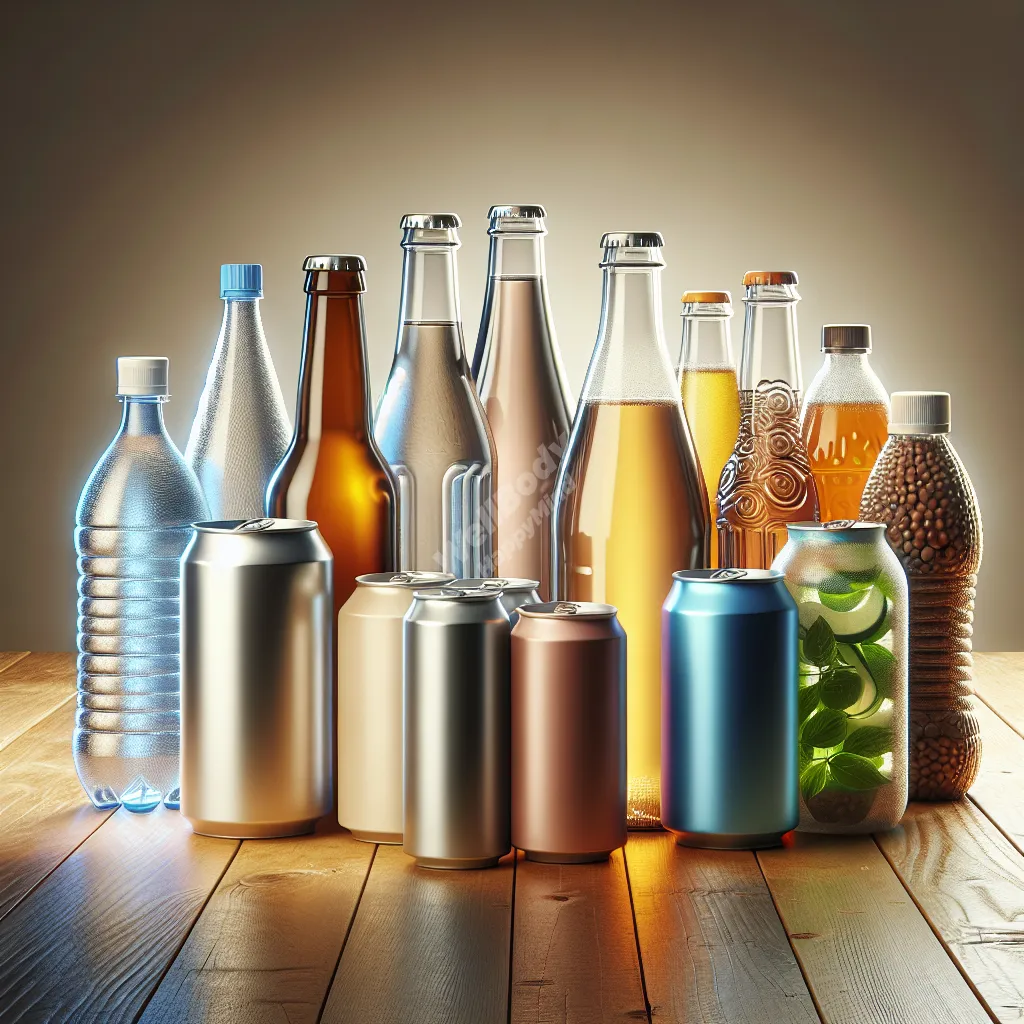
The packaging of our beverages can have a significant impact on the environment. Here’s why it’s important and what we can do about it:
Impact of Beverage Packaging
- Plastic bottles take up to 450 years to decompose
- Glass bottles are heavy to transport, increasing fuel consumption
- Aluminum cans require a lot of energy to produce, but are highly recyclable
Sustainable Packaging Options
- Glass:
• Infinitely recyclable without loss of quality
• Inert material, doesn’t leach chemicals into drinks
• Can be reused multiple times - Aluminum:
• Highly recyclable – can be recycled indefinitely
• Lightweight, reducing transportation emissions
• Provides excellent protection from light and oxygen - Biodegradable materials:
• Made from plant-based sources like cornstarch
• Break down naturally in the environment
• Still relatively new, so recycling infrastructure is limited
Tips for Proper Recycling and Disposal
- Rinse containers before recycling to avoid contamination
- Remove caps and lids – they’re often made of different materials
- Check local recycling guidelines – rules can vary by location
- Crush cans and plastic bottles to save space in recycling bins
- Reuse when possible – glass bottles can make great storage containers
Remember, the most eco-friendly option is always to reduce packaging use altogether. Opt for beverages in larger containers when possible, or better yet, make your own drinks at home!
DIY Eco-Friendly Beverages
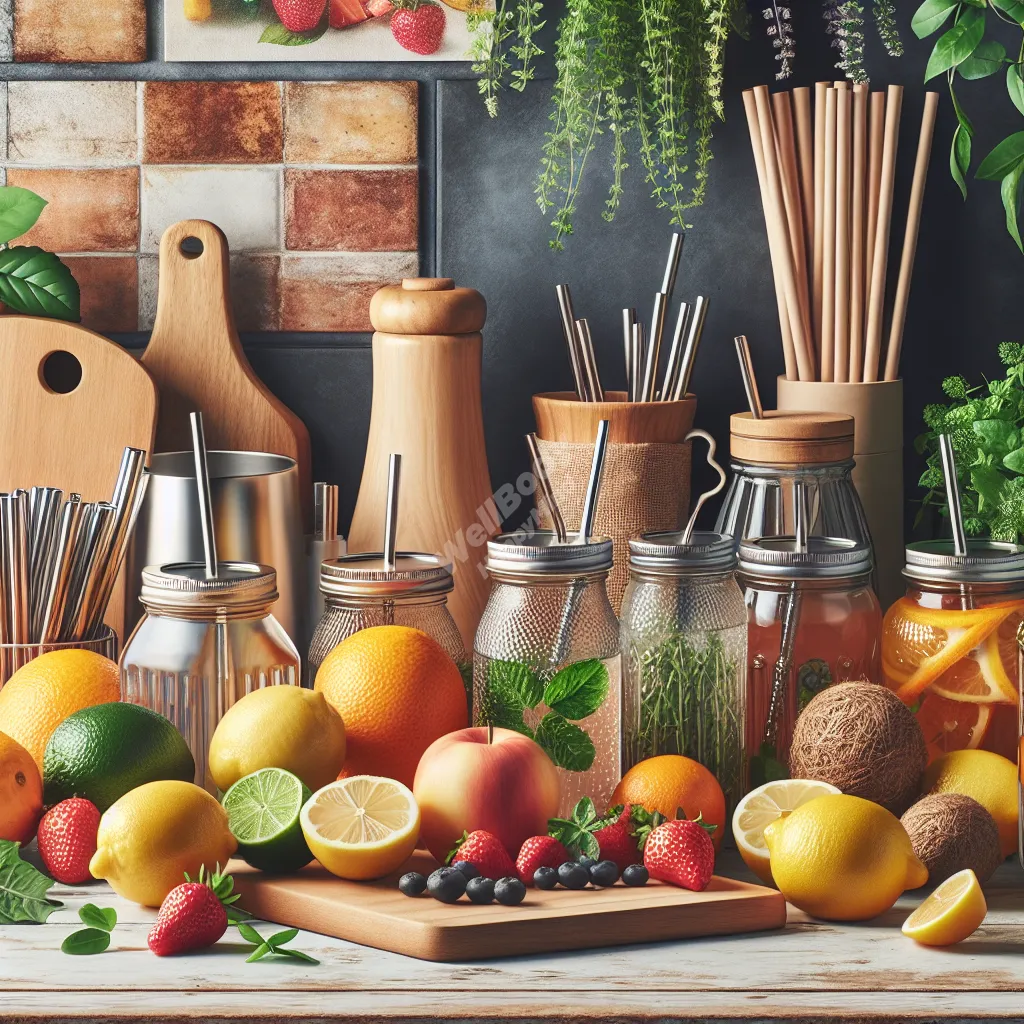
Making your own drinks at home is a fantastic way to reduce your environmental impact. Let’s explore the benefits and some easy recipes!
Benefits of Homemade Drinks
- Reduce packaging waste
- Control ingredients – avoid additives and excess sugar
- Save money in the long run
- Customize flavors to your liking
- Reduce carbon footprint from transportation
Easy-to-Make Sustainable Beverage Recipes
- Infused Water:
• Add sliced fruits, herbs, or cucumber to water
• Let sit for a few hours or overnight
• Enjoy a refreshing, flavored drink with zero waste! - Homemade Iced Tea:
• Brew your favorite tea
• Let it cool and add ice
• Sweeten with honey or agave if desired - DIY Lemonade:
• Mix fresh lemon juice, water, and a natural sweetener
• Add mint leaves for extra flavor - Smoothies:
• Blend fruits, vegetables, and plant-based milk
• Great way to use up produce before it spoils
Tips for Reducing Waste in Homemade Drinks
- Use reusable straws made from glass, metal, or bamboo
- Compost fruit peels and pulp
- Store homemade drinks in glass jars or bottles
- Buy ingredients in bulk to reduce packaging
- Grow your own herbs for garnishes and flavoring
By making your own drinks, you’re not only being kind to the environment but also to your health and wallet!
Supporting Sustainable Beverage Brands
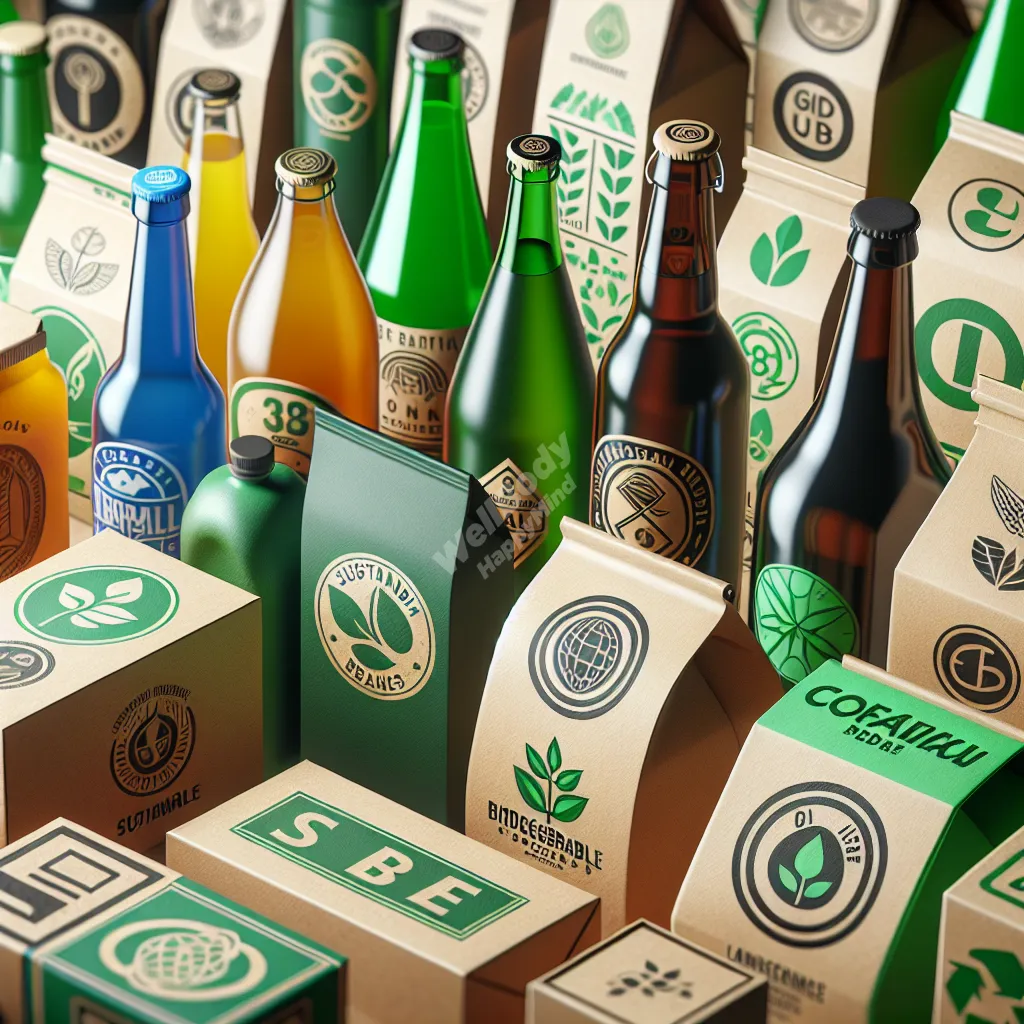
As consumers, our choices can drive positive change in the beverage industry. Here’s how to identify and support eco-friendly beverage companies:
How to Identify Eco-Friendly Beverage Companies
Look for brands that:
- Use sustainable packaging (recyclable, biodegradable, or minimal)
- Have transparent supply chains
- Use organic or locally sourced ingredients
- Implement water and energy conservation practices
- Support fair trade and ethical labor practices
- Invest in carbon offset programs
Notable Sustainable Beverage Brands
While it’s best to research brands available in your area, here are some examples of companies making strides in sustainability:
- Boxed Water Is Better: Uses recyclable cartons made mostly from paper
- Guayakí Yerba Mate: Practices reforestation and fair trade
- Brew Dr. Kombucha: Uses 100% renewable energy in production
- Harmless Harvest Coconut Water: Uses sustainable farming practices
- New Belgium Brewing: Known for their environmental stewardship in beer production
Importance of Consumer Choices
Your purchasing decisions can:
- Encourage companies to adopt more sustainable practices
- Send a message to the industry about consumer priorities
- Support innovation in eco-friendly packaging and production
- Reduce the environmental impact of the beverage industry overall
Remember, every purchase is a vote for the kind of world you want to live in. By choosing sustainable brands, you’re helping to create a more environmentally friendly beverage industry.
Tips for Sustainable Beverage Consumption

Here’s a practical list of tips to help you make your beverage choices more eco-friendly:
- Carry a reusable water bottle everywhere you go
- Invest in a home water filter if you’re concerned about tap water quality
- Say no to plastic straws – use reusable metal, glass, or bamboo straws instead
- Choose drinks in recyclable packaging when possible
- Opt for larger containers rather than individual servings to reduce packaging waste
- Support local beverage producers to reduce transportation emissions
- Make your own drinks at home to reduce packaging and control ingredients
- Compost tea bags and coffee grounds in your garden
- Use a reusable coffee cup for takeaway orders
- Try different plant-based milks to find your favorite sustainable option
- Choose organic and fair-trade certified beverages when available
- Properly recycle or dispose of beverage containers
- Avoid over-packaged drinks with unnecessary plastic wrapping
- Consider the environmental impact when choosing between similar products
- Educate others about sustainable beverage choices
Remember, small changes in your daily habits can add up to make a big difference for our planet!
Conclusion
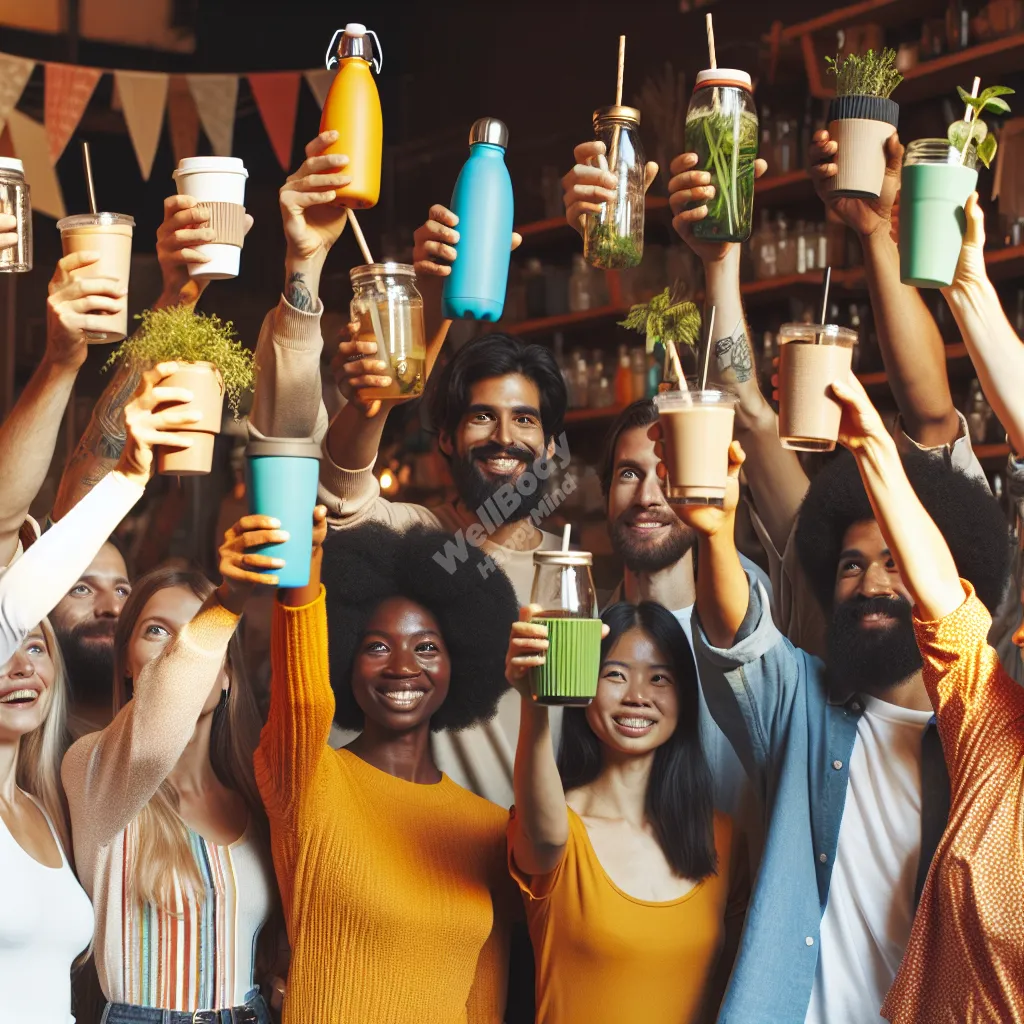
As we’ve seen, our beverage choices can have a significant impact on the environment. But the good news is that small changes in our daily habits can make a big difference!
Let’s recap the key points:
- Eco-friendly beverages are those with a lower environmental impact throughout their lifecycle.
- Many common drinks have surprising environmental costs, from water usage to packaging waste.
- Sustainable alternatives exist for almost every type of beverage, from water to coffee to alcoholic drinks.
- Plant-based milks often have a lower environmental impact than dairy milk.
- Packaging matters – opt for recyclable or reusable containers when possible.
- Making your own drinks at home can significantly reduce your environmental footprint.
- Supporting sustainable beverage brands encourages positive change in the industry.
Remember, every sip counts! By choosing eco-friendly options, you’re not just quenching your thirst – you’re also helping to protect our planet. Whether it’s carrying a reusable water bottle, choosing organic coffee, or making your own infused water at home, these small actions add up to make a real difference.
So, the next time you reach for a drink, take a moment to consider its environmental impact. Your choice could be a refreshing step towards a more sustainable future!
Cheers to sustainable sips and a healthier planet!



